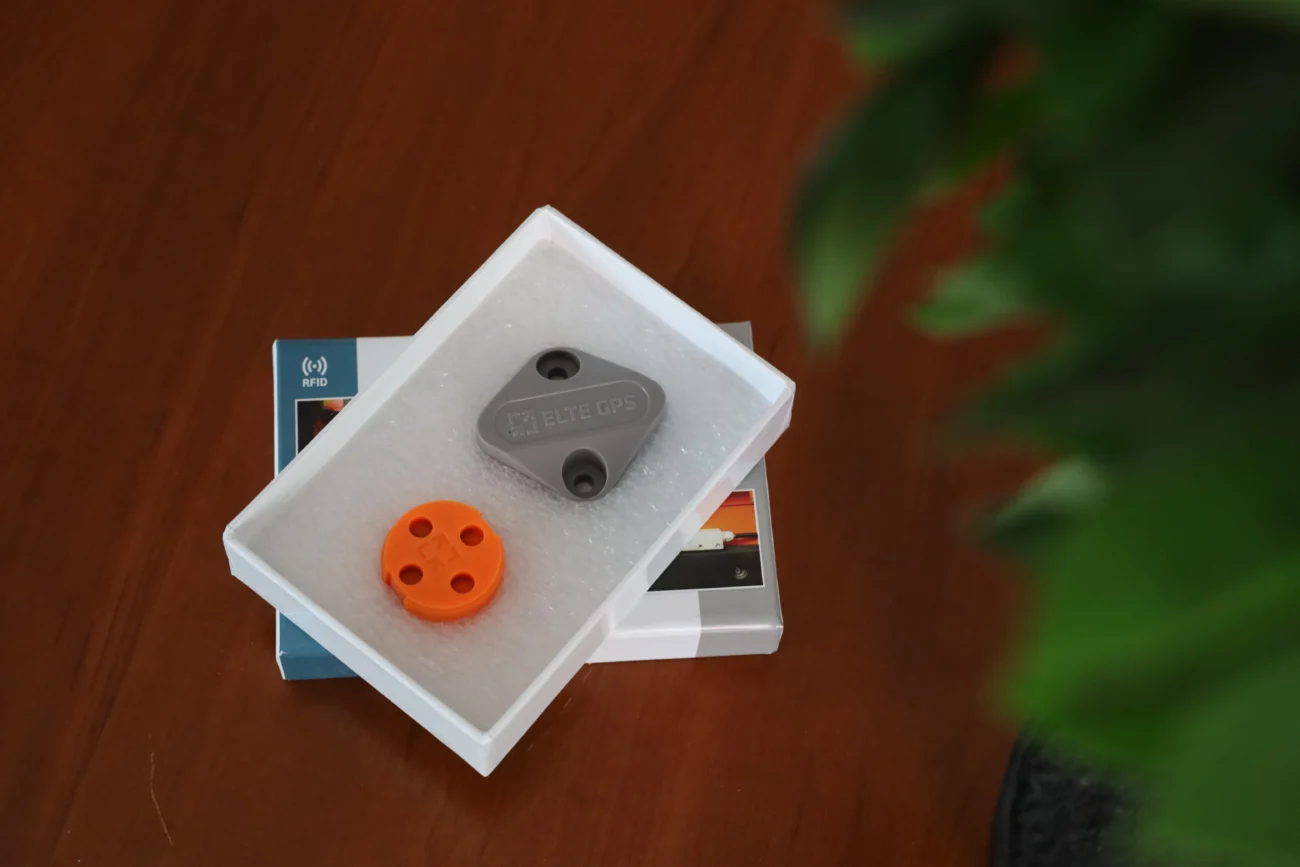What is RFID technology and how does it work?
The operation of RFID technology is based on the use of radio waves, which carry information between the two main components of the system: the tag, and the reader. As the communication is wireless, the information can be read from different distances, depending on the type of tag and its application. The reading range can be from a few centimetres to up to several metres.
Importantly, RFID technology provides the ability to read multiple tags simultaneously, making it extremely effective in a variety of areas. In addition, it enables the electronic powering of data storage devices. The tags themselves can be placed invisibly or hidden inside the housing of the device in question.
RFID technology is the key to efficiency and economy
RFID makes our work more efficient and our daily life considerably easier. Thanks to tags, we can easily identify objects, which contributes to streamlining many processes and saves time and money.
RFID tags are used in various areas such as:
– tool and equipment tagging – the process of identifying, recording and assigning tools to employees is carried out more efficiently, which eliminates downtime and reduces customer collaboration time. Thanks to automatic RFID reading, manual identification with barcodes is no longer necessary, resulting in higher productivity;
– shipment tracking – in courier companies, RFID enables real-time tracking of shipments. This allows us to easily monitor their location, shipment and delivery to the correct recipients. The use of this technology reduces the risk of fraud and also allows us to control the temperature of parcels, which is important in some industries;
– evacuation assistance system – the implementation of RFID systems contributes to increased safety in the workplace. By identifying workers and providing immediate information about their presence in specific areas, evacuation can be carried out more quickly and efficiently in life and health-threatening situations;
– waste management – RFID tags make it possible to control waste collection and segregation. Each container fitted with the tag is identified, allowing better planning of collection routes and reducing unnecessary trips;
– everyday use – RFID tags have a wide range of applications, such as an ID cards, chips, stickers or even key fobs. They facilitate work in shopping malls, where they monitor stock levels and parking space availability and protect against theft. On buses, they can be found in the form of electronic tickets, at the airport they are used to identify luggage and on housing estates they are used to open gates.

RFID in waste management
The RFID system, which is transparent and tailored to residents’ needs, significantly improves the waste collection process. By combining the location of municipal vehicles with RFID transponders in the FDX/HDX/UHF standard, a simple and reliable tool has been created to manage and supervise containers. This greatly simplifies the management of the container base and impacts on work efficiency.
Previously, waste collection staff had to record data manually, which slowed down work and contributed to more errors. Now, thanks to RFID technology, it is possible to read the code of the waste container while it is being loaded onto the garbage truck’s loader. The RFID identification system makes it possible to read the tag number, to which we can assign additional information such as the size of the container, its identifier, the property address, date and time of collection. All of this makes the management of the container base more transparent and automated, and employees can accurately plan their routes, minimizing the number of unnecessary trips.
The use of RFID in the waste collection process has optimized the process, while reducing the risk of possible errors. This has significantly improved the quality of the service provided, both from the perspective of the waste collection companies and the residents themselves.

RFID tags used for waste bin identification
Doubts and risks associated with the use of RFID
One of the main threats to the widespread use of RFID technology is the possibility of RFID tags interfering with other devices that emit radio waves. Such conflicts can cause errors in readings, affecting the accuracy of management and surveillance systems. To avoid this problem, it is crucial to carefully select the right frequency for the tags and to carry out real-world testing before full deployment. In addition, anti-collision technologies that enable multiple tags to be read efficiently at the same time are essential. Once an RFID system is implemented, it is important to regularly monitor and maintain the infrastructure to detect and rectify any disruptions or errors.
Effective use of RFID requires continuous research and development of data security and monitoring of potential threats. Adequate privacy and interference elimination measures will allow the full potential of this technology to be realized and enjoyed while minimizing potential risks.
Summary
With the use of tags and readers, exciting new opportunities are opening up for the automatic tracking and identification of objects. This innovative technology fits perfectly into a variety of processes that we can now streamline and optimize.
In the context of waste management, RFID has made it possible to create a simple and reliable tool for the disposition and supervision of containers. This has had a significant impact on container base management and staff efficiency. Constant data monitoring has opened up the possibility of optimizing the routes of municipal vehicles, allowing us to focus on collecting full containers. We are thus saving time, resources and at the same time reducing the negative impact on our environment.
Source:
https://www.evimaster.pl/rfid-a-kody-kreskowe-roznice-i-korzysci/
https://www.rfidpolska.pl/zastosowanie-rfid/
https://www.masterid.pl/system-rfid-wspomagajacy-ewakuacje/
https://www.bankier.pl/wiadomosc/Historia-i-dzialanie-technologii-RFID-1985822.html
http://yadda.icm.edu.pl/baztech/element/bwmeta1.element.baztech-article-BSW4-0068-0036
